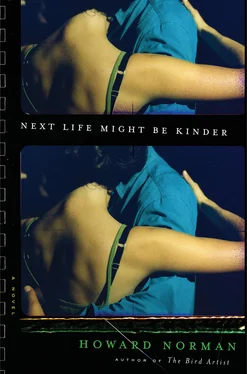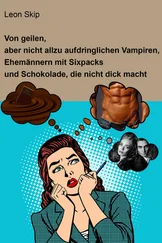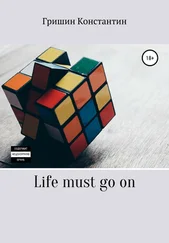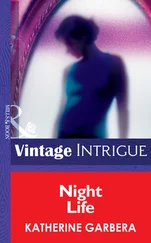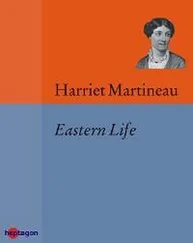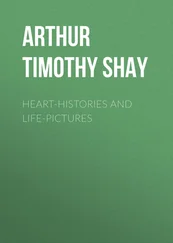With Dr. Nissensen, April 17, 1973:
Quite late in today’s session, I handed Dr. Nissensen an article from the Toronto Star that someone had left in the café at Vogler’s Cove. I’d cut out the article and carried it in my wallet. He read it quickly, looked up, and said, “You’ve underlined one word.”
“Okay, so, a woman—”
Dr. Nissensen looked down at the article. “Mary Yamada, age twenty-nine,” he said, then gave the clipping back to me.
“—is shot and killed by some lunatic while walking home from a movie. The next day — the murder took place at nine at night. The very next day, some idiot from the mayor’s office says”—I read from the article—“‘Mayor Crombie visited the bereaved family of Mrs. Yamada and offered his condolences. He said he would pray for their daughter, and for them to soon find closure with this tragedy.’”
Dr. Nissensen said, “Here you’re taking the opportunity to reaffirm your feelings about the hated word.”
“‘Oh, right, thank you, Mayor,’” I said, loaning a Yamada family member my most scathing tone. “‘It’s been more than twelve hours already. We should be over this. Maybe we should go grocery shopping. Maybe we should go to the movies. Oh, by the way, Mayor Shithead, where’s the Office of Closure? Can you write down the address, please? We’ll drop by soon as we can. Are there many forms to fill out? Oh, by the way, did you actually say “soon find closure”? How soon? Get out of my house, you goddamn fucking useless moron. Guess what? I am not voting for you next time.’”
Dr. Nissensen didn’t seem to know where to go from here; I didn’t know, either. We said nothing for ten or so minutes. A charitable way to view this: together we afforded him time to write in his notebook.
STARTING AT SEVEN A.M., I spent the day, right up to dusk, at Vogler’s Cove and almost succeeded in replacing thought with simply gazing at birds. It was as if my empty head became the cove, or vice versa, birds flying in and out, the wind, the sky. I tried hard not to think about things. It mostly worked.
Late morning, I sat at a picnic bench, looking at ducks through my binoculars. The hours drifted by. I walked the entire length of the cove. Sat in the café and had a lunch of fish soup and bread. Read the Chronicle-Herald (no articles about the movie). Then back out onto the beach, the wind bracing and the sun warm on the skin. As I was scanning the far shore, I saw Brian Moore walking by himself. He was dressed in khaki trousers, a dark green cotton shirt, a windbreaker, and brown hiking boots laced to the ankle. Brian Moore, my favorite living writer. I was tongue-tied even at that distance.
Despite Cynthia’s saying, “Brian is very approachable — true, he doesn’t suffer fools, but I’m sure he and his wife, Jean, would be interested in meeting you, Sam, not only because you’re our friend, but because you’re a published writer,” I did not approach him. Going by photographs I’d seen of her, Jean Moore, a good friend of Cynthia’s, was a stunningly beautiful woman. Jean and Brian’s house was on a somewhat isolated, wind-sculpted length of coast, no walking beach nearby. (I admit I’d gone out of my way to drive past the house a number of times.)
And now here he was, strolling down the beach, my favorite living writer. The Lonely Passion of Judith Hearne, The Feast of Lupercal, The Luck of Ginger Coffey, An Answer from Limbo, The Emperor of Ice-Cream. I had even sleuthed in the John W. Doull bookshop and found the “B-movie noirs, written to pay the bills” (as he once said in an interview): Wreath for a Redhead, The Executioners, French for Murder (written under the name Bernard Mara), A Bullet for My Lady (as Bernard Mara), This Gun for Gloria (as Bernard Mara), Intent to Kill (as Michael Bryan), Murder in Majorca (as Michael Bryan).
At about five o’clock, I went back to the café to get a coffee. I was in there about fifteen minutes when I looked up from the Chronicle-Herald and saw Brian Moore come in. He sat three tables over, as far as possible from my table, facing the window. Sarah was the waitress again. He ordered lemon tea and a scone.
I kept my head bowed to the newspaper, but I wasn’t really reading. I was concentrating on not bothering Brian Moore. But ten minutes or so after his tea and scone were served, he looked over at me and said, “I recognize you from the photograph on your book. I was terribly sorry to learn of the death of your wife, Mr. Lattimore. Very rough, very rough. I can’t imagine. Jean keeps me informed. I’m her husband, Brian.” He sipped his tea, just to warm up, it seemed, and decided to take the scone with him. He wrapped it in a paper napkin, stood, nodded goodbye, paid his bill, and left the café.
I was very excited to tell Elizabeth. She knew my feelings about Moore’s novels. She had read only I Am Mary Dunne, which she admired. During our time in the Essex Hotel, I even stole — well, paraphrased — a few lines of his, from French for Murder and This Gun for Gloria, for a Mr. Keen script.
Back in the cottage, I prepared a lamb chop, couscous (adding to it finely chopped, sautéed mushrooms), and asparagus for dinner. I moved the shortwave to the kitchen table and tried to catch channels from Europe, but the airwaves were all static and full of the high-pitched whistling sound that shortwaves make. I took a half-hour nap. At about nine-thirty, I threw on a sweater and went down to the shore. Philip and Cynthia were out; I recalled them saying they were having dinner with Brian and Jean Moore. I was ten or fifteen meters back from the beach when Elizabeth showed up, carrying the books, of course. She set them out on the sand.
“Elizabeth, I’m so happy to see you,” I said.
She walked a few steps toward me, stopped, and appeared to study my face for a moment. “You look so tired, Sam. You’re not sleeping, are you?”
“In fact, I just now took a nap.”
“Then I can only imagine how you looked before the nap.”
“You’ll never guess who I saw today over at Vogler’s Cove. Brian Moore. I’m absolutely not kidding.”
“Did you faint on the beach, Sam? Did you need a fainting couch?”
“He stopped into the café there. He had lemon tea and a scone.”
“Did you talk?”
“He said something to me, just a few sentences. Me, nothing back.”
“Are you going to have those few sentences embroidered on a sampler and frame it and put it over your bed?”
“No, because I have the photo-booth photographs of us over my bed.”
Elizabeth looked out to the water: a few gulls, white flashes in the dark; a lot of stars; it was a very clear night. “Tomorrow night I intend to tell you what happened that day in the hotel. I think it’s time, Samuel. I can’t say all the reasons, but you’ll just have to trust me. So I’ll see you tomorrow night. Promise me.”
I felt a rush of anxiety and couldn’t catch my breath. Still, I said, “I promise. Of course I promise. I’m here every night you are, without fail.”
“You forgot to tell me what birds you saw today. Did you bring your list with you?”
“Right here in my pocket.”
The Scissors Let the House Enforce the Distinction
THE HOURS OF the Port Medway Library were eleven A.M. to six P.M. Tuesday through Friday, eleven to eight on Saturday, and noon to five on Sunday. Sunday last, at around two P.M., I drove over to look around. The library consists of three rooms: the main room, whose windows look out over the sea, a room for children’s books, and the “reading room,” which contains three easy chairs, a sofa, and a long table with reading lamps.
Читать дальше
